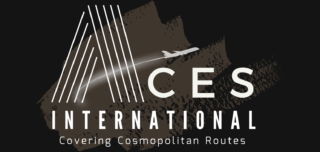Making a career change can feel daunting, yet it offers a chance for personal and professional growth. The key to a successful transition lies in thorough self-assessment, planning, and networking. By understanding one’s skills and interests, individuals can identify new paths that align with their goals.
Many people hesitate to pursue a different career due to fear of the unknown or the effort required. A structured approach to career change can alleviate these concerns. They can leverage existing skills while acquiring new ones, easing the shift into a different industry.
Networking plays a crucial role in this journey. Building connections within the desired field provides insights and opportunities that can facilitate the transition. Engaging with mentors or professionals can further guide one’s path, making the process less overwhelming and more rewarding.
Understanding the Career Change Landscape
Navigating a career change involves evaluating personal motivations, examining the job market’s current status, and recognizing transferable skills. By focusing on these key areas, individuals can create a well-informed strategy for their transition.
Assessing Personal Motivations
Personal motivations are critical for a successful career change. Individuals should engage in self-reflection to identify what drives their desire for a different career path. Important questions include:
- What are the key factors prompting this change?
- Are they seeking better work-life balance, job satisfaction, or higher income?
This self-assessment helps clarify goals and ensures alignment with their career development efforts. Understanding motivations can also provide the necessary resilience during challenging times.
Analyzing the Job Market
A thorough analysis of the job market is essential for anyone considering a career change. Researching industries that are growing or in demand can reveal opportunities. Key considerations include:
- Current job trends: What roles are experiencing growth due to factors like The Great Resignation?
- Required skills: Which skills are sought after in the new desired field?
Using job boards, networking, and industry reports can provide insights into emerging fields and potential job openings. By understanding these dynamics, individuals can make informed decisions that increase their chances of securing desired positions.
Identifying Transferable Skills
Recognizing transferable skills is vital in any career transition. Individuals must analyze their previous experiences to pinpoint skills relevant to their new career. Common transferable skills include:
- Communication
- Problem-solving
- Project management
Building a skills transfer framework allows individuals to articulate their value effectively in new contexts. Tailoring resumes and cover letters to highlight these skills can significantly enhance job prospects in a new industry.
Preparing for Your Career Transition
A successful career transition requires strategic planning and actionable steps. Building a professional network, acquiring new skills, and creating an effective resume and cover letter are key components of this process.
Building Your Professional Network
Networking is vital in establishing connections in a new field. He or she should start by reaching out to former colleagues, friends, and family who might have insights or connections to the desired industry.
Attending industry-specific events, workshops, or seminars can provide exposure to key players and trends. Utilizing platforms like LinkedIn enhances visibility and facilitates contact with professionals in the target field. It’s important to engage in conversations and share knowledge, as genuine interactions can lead to valuable opportunities. A strategic approach to networking involves setting clear goals for interactions. Whether seeking mentorship or job leads, clarity in intention makes discussions more fruitful.
Acquiring New Skills and Certifications
Transitioning careers often require new skills that align with the chosen field. Identifying the specific hard and soft skills required is essential. He or she can research job postings within the target industry to determine these needs. Enrolling in relevant courses, workshops, or boot camps helps develop necessary competencies. Online platforms like Coursera and Udacity offer various professional certifications. Additionally, local community colleges may provide resources for in-person classes.
Staying current with industry trends through continuous learning creates a competitive edge. Consider joining professional associations to access resources and networking opportunities focused on skill development.
Crafting an Effective Resume and Cover Letter
A tailored resume and cover letter are critical in making a strong first impression. He or she should highlight transferable skills gained from previous experiences that are relevant to the new career path. Using action verbs and quantifiable achievements enhances the appeal of the resume. Bullet points can help emphasize key skills and experiences clearly. The cover letter should succinctly convey motivation for the career change and illustrate how past experiences contribute to future success in the new role. Customizing both documents for each application demonstrates commitment and attention to detail.
Strategizing Your Career Move
Making a successful career change requires careful planning and clarity. Setting specific goals, creating a development plan, and balancing financial and personal considerations are crucial steps in this process.
For individuals relocating across borders or provinces, seeking professional advice can be essential. Consulting an immigration lawyer in Markham, ON or a law professional near you, may help navigate legal requirements, work permits, or residency concerns that could otherwise delay your career shift. These legal professionals can assist with ensuring you meet the necessary immigration and employment regulations, making your transition smoother and more secure.
If your career change also involves moving out of state, it can be helpful to work with a cash home buying service to streamline the process and reduce delays. Companies like Sell Florida House Now can offer a faster route to selling your property, which is especially useful when timing and flexibility are key. There are similar services available depending on your location, so it’s worth exploring options that align with your moving timeline.
Setting Clear Career Goals
Identifying specific career goals is essential for anyone looking to switch careers. Goals should be SMART: Specific, Measurable, Achievable, Relevant, and Time-bound. For example, one might aim to transition into a new field within six months or obtain a specific certification. It is also important to differentiate between short-term and long-term goals. Short-term goals might include networking within the new industry, while long-term goals could focus on reaching a particular salary level or job title.
Creating a Career Development Plan
A comprehensive career development plan outlines the steps necessary to achieve goals. This plan should include actions such as gaining relevant experience, seeking mentorship, and expanding skills through training or workshops. A timeline for each action will help maintain focus and momentum.
Regularly revisiting and adjusting the plan ensures it remains aligned with evolving goals and industry demands. Incorporating feedback from mentors or peers can enhance the plan’s effectiveness and provide necessary motivation.
Evaluating Financial and Work-Life Balance Goals
Switching careers can impact financial stability. Evaluating salary goals is vital before leaping. Researching industry salaries helps set realistic expectations. For instance, in the real estate field, 100 commission real estate brokerages are becoming more and more popular, allowing agents more freedom in how they manage their money. Additionally, consider the implications on work-life balance. A new job may require different hours or responsibilities. Assessing personal values and priorities will guide this evaluation. Creating a financial cushion can ease the transition, allowing for a smoother adjustment to new circumstances. Balancing career aspirations with personal life ultimately shapes a fulfilling professional journey.

